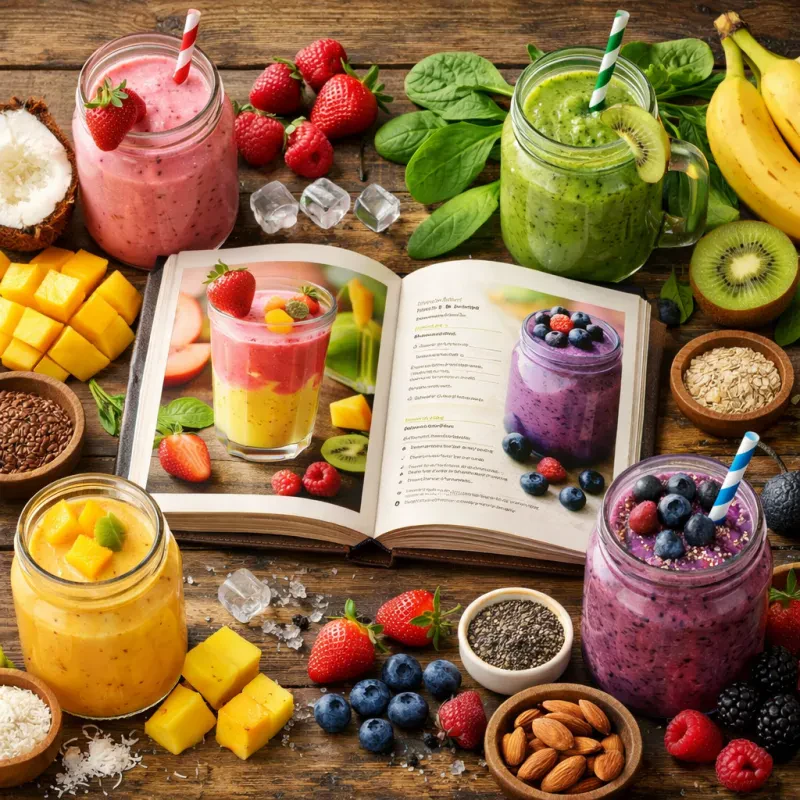Vitamins B play a vital role in maintaining our overall health and well-being. These essential nutrients are a group of eight water-soluble vitamins that support various bodily functions. From boosting energy levels to promoting healthy skin, Vitamins B are crucial for our daily lives. Understanding their importance can help us make informed dietary choices and ensure we receive the right amount of these nutrients.
The B vitamins, which include B1 (thiamine), B2 (riboflavin), B3 (niacin), B5 (pantothenic acid), B6 (pyridoxine), B7 (biotin), B9 (folate), and B12 (cobalamin), each serve unique purposes in the body. For instance, Vitamin B1 is essential for energy metabolism, while B9 plays a significant role in DNA synthesis and repair. This diversity means that a deficiency in any of the Vitamins B can lead to various health issues, from fatigue to neurological problems.
In addition to energy metabolism, Vitamins B contribute to the production of red blood cells, which transport oxygen throughout our bodies. This is particularly important for individuals who lead active lifestyles or engage in regular exercise. Including a variety of foods rich in Vitamins B, such as whole grains, nuts, seeds, leafy greens, and animal products, can help ensure that we get a balanced intake of these essential nutrients.
Another noteworthy benefit of Vitamins B is their impact on mental health. Research indicates that certain B vitamins, particularly B6, B9, and B12, are linked to improved mood and cognitive function. This makes them important not only for physical health but also for emotional and mental well-being. Incorporating foods rich in Vitamins B into our diets can serve as a natural way to support our overall mental health.
Key Benefits for Your Health
Vitamins B play a vital role in maintaining your overall health and well-being. These essential nutrients are involved in numerous bodily functions, providing benefits that are both immediate and long-lasting. One of the key advantages of incorporating Vitamins B into your daily routine is their ability to boost your energy levels. B vitamins help convert carbohydrates into fuel, ensuring that your body has the energy it needs to power through daily activities.
Another significant benefit of Vitamins B is their impact on mental health. Certain B vitamins, such as B6, B9 (folate), and B12, are crucial for brain function and emotional balance. They help produce neurotransmitters like serotonin and dopamine, which are vital for mood regulation. By ensuring you have enough of these vitamins, you can support better mental clarity and improved mood, making it easier to tackle challenges and enjoy life.
Vitamins B also play an important role in supporting your immune system. A well-functioning immune system is essential for fighting off infections and diseases. Vitamins B, particularly B6, are involved in the production of antibodies that help in protecting your body from harmful pathogens. Including a variety of B vitamins in your diet can lead to a stronger immune response and better overall health.
Additionally, maintaining adequate levels of Vitamins B is essential for heart health. These vitamins, especially B6, B9, and B12, help regulate homocysteine levels in the blood, reducing the risk of cardiovascular diseases. A healthy heart is fundamental to your overall health, as it keeps blood circulating efficiently and ensures all other organs receive the oxygen and nutrients they need to function properly.
Natural Sources of Vitamin B
When it comes to getting our daily dose of Vitamins B, nature has plenty of delicious options to offer. These essential vitamins play a critical role in keeping our bodies functioning at their best. With a variety of food sources available, you can easily incorporate them into your diet while enjoying diverse and tasty meals.
One of the richest natural sources of Vitamins B is whole grains. Foods like brown rice, oats, and quinoa are packed with B vitamins, including thiamine, riboflavin, and niacin. Not only do they provide energy, but they also support brain health and help in the production of red blood cells. Starting your day with a warm bowl of oatmeal or packing a quinoa salad for lunch can be a simple way to boost your intake.
Lean meats and poultry are also excellent sources of various Vitamins B. Chicken, turkey, and beef are particularly high in vitamin B6 and B12, which are essential for maintaining a healthy nervous system and preventing anemia. Incorporating these proteins into your meals can significantly enhance your overall vitamin intake while keeping your meals satisfying and nutritious.
Dairy products and eggs are further natural sources of Vitamins B. Milk, yogurt, and cheese are rich in riboflavin and vitamin B12, while eggs provide a good amount of biotin. These foods not only fortify your vitamin levels but also offer calcium and protein, making them an ideal choice for growing children and active adults alike. Enjoying a breakfast of scrambled eggs or a smoothie with yogurt can be an excellent way to start your day on a nutritious note.
Getting the right amount of Vitamins B is essential for maintaining good health and energy levels. To ensure you’re optimizing your intake, start by incorporating a variety of foods into your diet. Whole grains, legumes, nuts, and seeds are excellent sources of B vitamins. Try to include them in your meals regularly to help your body get the range of B vitamins it needs.
Another helpful tip is to pay attention to your cooking methods. Some B vitamins, like vitamin B12, are sensitive to heat and can be diminished during cooking. To preserve their benefits, consider steaming or lightly sautéing your vegetables rather than boiling them. This way, you'll keep more of those valuable nutrients intact, allowing you to maximize the benefits of Vitamins B.
If you follow a vegan or vegetarian diet, be particularly mindful about your Vitamin B12 intake. This essential vitamin is primarily found in animal products, so consider fortified foods such as plant-based milk and cereals, or speak with a healthcare provider about taking a supplement. This approach ensures that you’re meeting your body’s needs while following your dietary preferences.
Lastly, don’t underestimate the power of hydration. Drinking plenty of water helps your body absorb nutrients more effectively, including Vitamins B. Aim for at least eight glasses of water a day, especially if you’re active or live in a hot climate. Staying hydrated not only supports vitamin absorption but also contributes to overall well-being.



